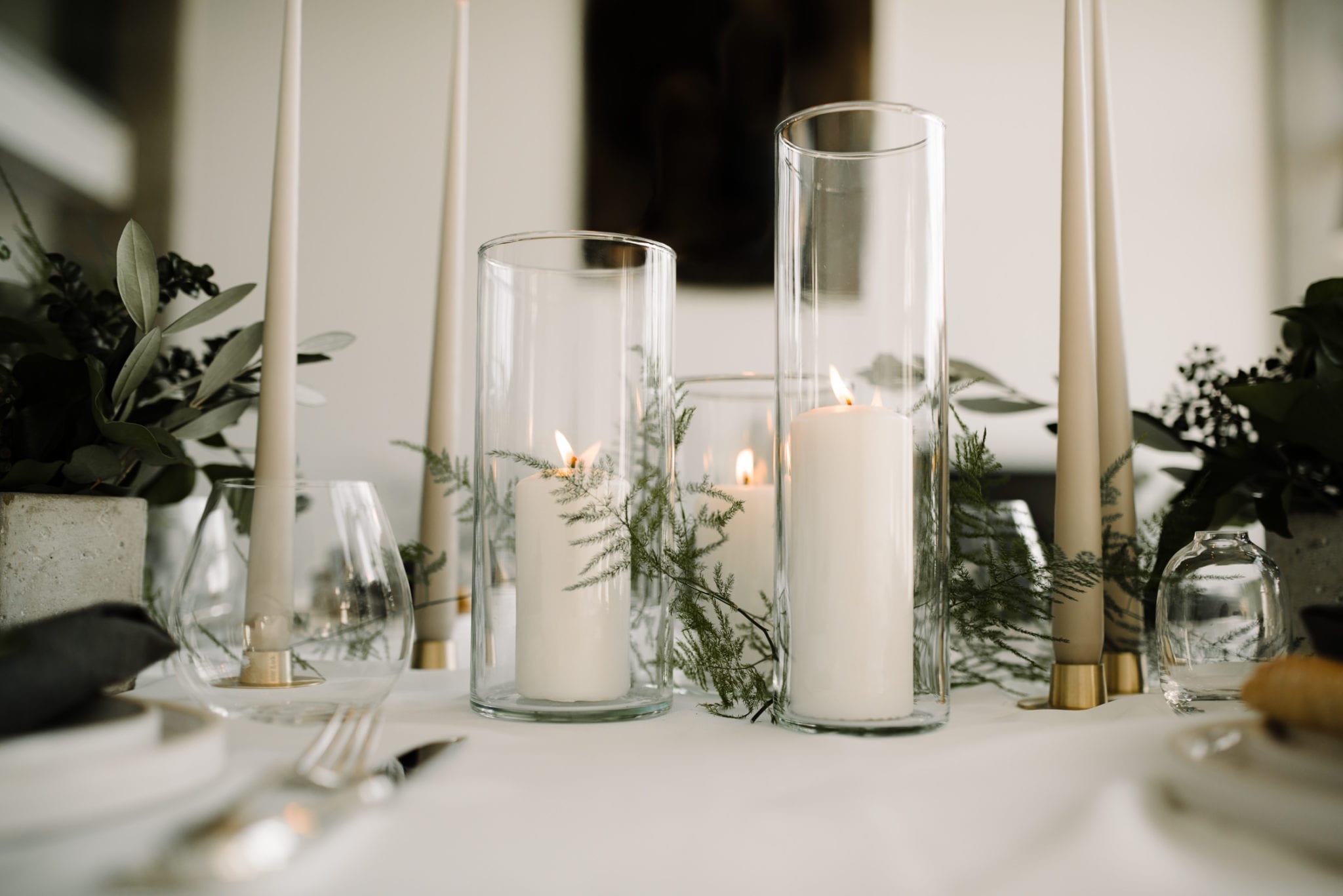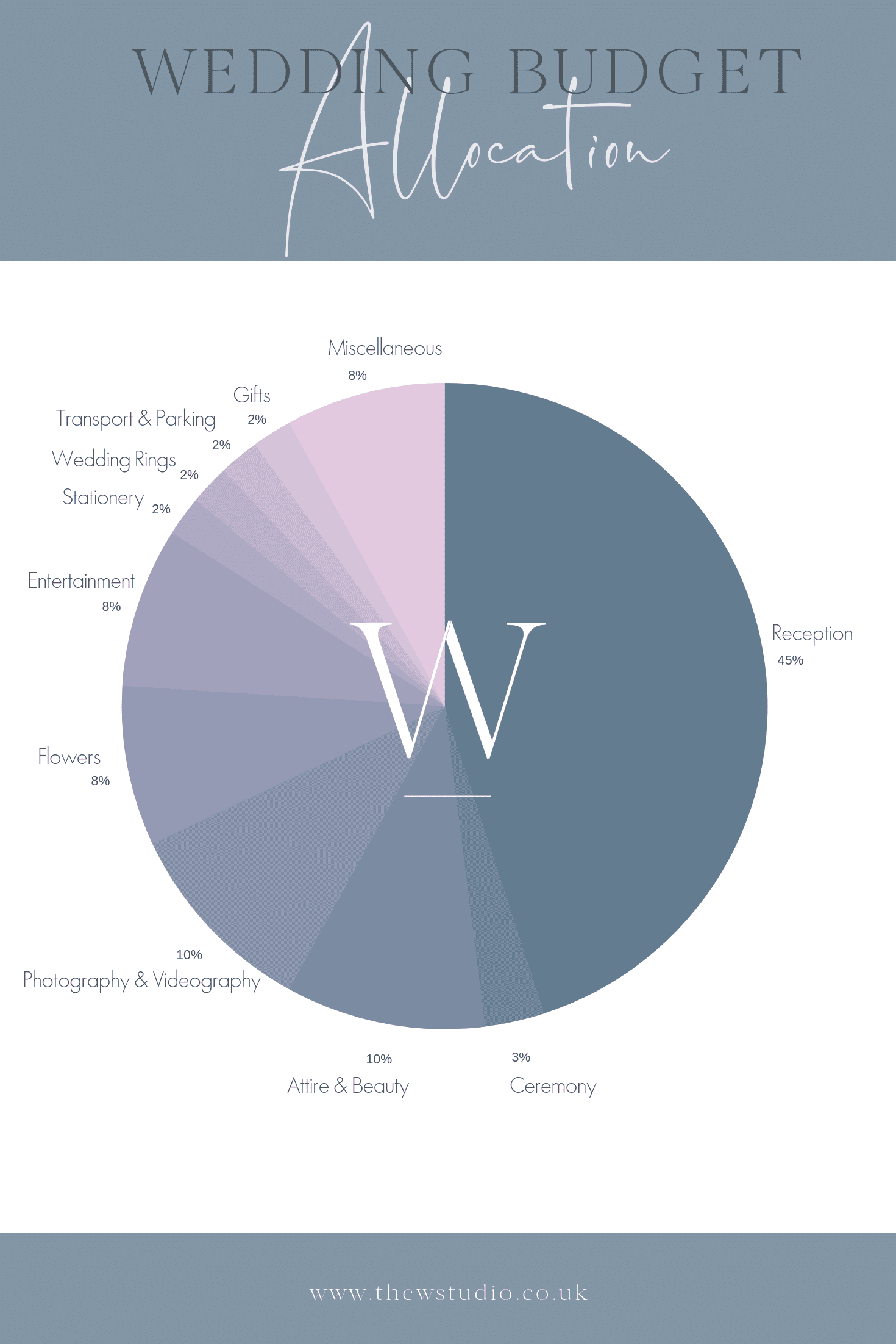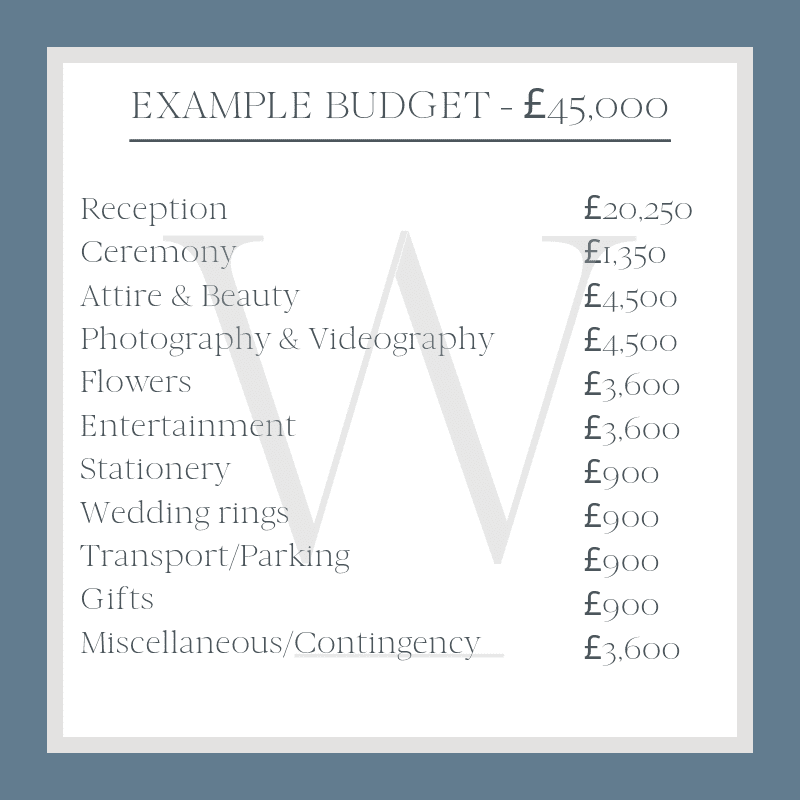How to Start Planning your Wedding – The 5 things you should do first
So, you’re engaged!
Congratulations! But now what?
How to start planning your wedding.
After the initial buzz of getting engaged has settled and the celebrations are coming to an end, the realisation of just how much there is to do may seem daunting. Don’t get me wrong – planning your wedding is HUGELY exciting and there’s no reason why it should be stressful – as long as you make a plan for your planning!
As a wedding planner, the first thing I’ll often hear a bride say is, “I just don’t know where to start”. If you take the time to work out a plan, you will find that everything starts to fall into place quite naturally. To help get you started, here are the first 5 things you should be doing when planning your wedding.
1. Talk & Prioritise
I touch on this in ‘Finding your wedding style’, but talking to your partner, whilst seemingly obvious, really does provide clarity on how to approach your wedding planning journey. Knowing each other’s vision and aspirations for the day, from the outset, will make the process much smoother. Discovering your partner hates the colour blue, six months into planning your perfect blue wedding, is not ideal!

Make lists of each of your ‘must haves’ and ‘definitely nots’ to get clear on what you would both like (and would not like) at your wedding. What things are most important to you as a couple? Is it a traditional church ceremony; a fancy sit down dinner; a favourite band; or you may even have a particular venue in mind that you’d love to get married at, but which will require compromise in other areas of your budget spend.
Once you have your lists – prioritise. This will help you allocate your budget. List your top 5 must haves in order, then slot in your other ‘would likes’ below them. You will soon see where you should be focusing your budget and where you can compromise.
The next 3 points are in no particular order as really, they should be considered in conjunction with each other. Your wedding style (what you want your wedding to look and feel like), your guest list and your budget are very much interlinked and influence each other. So, in no particular order…
2. Find your wedding style
I talk about this – a LOT! But, whilst you may not realise how important this stage is when planning your wedding, once you’ve established exactly what you want your wedding to look and feel like, the decisions you make further down the line will become much easier. Take a look at ‘Finding your wedding style’ for my top tips on how to go about this important stage.
Knowing your style and which elements you’d like to incorporate in your wedding design, will help you understand how to allocate your budget. (I told you they were interlinked!). If, for example, you feel strongly about having a lavish and sumptuous selection of cakes and desserts, you may want to re-consider the price of the wine you serve with your meal, so that you can bring all of it in within your catering budget. If you are happy to save on flowers in favour of more foliage and candles on your tables, you could potentially then allocate more budget to your dress or the must-have shoes!

Planning your wedding is all about working out your style and exactly what you want, then being clever with how you incorporate this within your budget.
3. Guest List
Make a list (yes…there’s a LOT of list making when planning your wedding!) of everyone you THINK you’d like to invite to your wedding. Tally them up and see what the numbers are looking like. Your guest numbers are your biggest budget consideration.
How many people you have will determine how big the venue needs to be, how much you will spend on catering, how much drink you need to supply, number of tables you will have and all the things that in turn entails– i.e, tableware, centrepieces, glassware etc. Every part of your spending is directly linked to how many people will be there.
This is not to say you cannot have a large guest list on a tight budget. You just need to get clever with how you spend your budget. For example, to bring the cost of feeding 200 people within budget, you could choose a more informal buffet over a 3 course sit down meal. You could supply just the drinks for the meal and then a cash bar (where your guests pay for their drinks) for the evening reception.
As I’ve said, guest list and budget go hand in hand, so…
4. Set your budget
If you have a very set budget and a clear idea of the type and style of your wedding, you may then set yourself a maximum number of guests to be able to have the wedding you want. Or, if having everyone you know at your wedding is important and your budget can be more flexible, you can set your budget according to your numbers.
Once you have set a budget, however – stick to it! Well, within reason anyway! There should always be a slight contingency for things you come across that you may have forgotten about or realise you just can’t do without! But, using the figure you have, you can work out your budget spend on each element and approach venues and suppliers based on your allocated spend for each of those areas.
I will be covering this in more detail in a later post, but as a rough guide, this is an example of how you might breakdown your budget spend:

Where your actual spend lies will depend on your priorities and which areas are more important to you. By far your biggest spend, however, will always be your reception (venue hire, catering, drinks, cake, staff, rentals etc).

Top Tip
The time of year and the day of the week of your wedding will have a significant impact on your venue spend. Venues tend to charge more during the peak season (May to Sept in the UK) and on Fridays and Saturdays. More and more couples are therefore opting for either a winter wedding, or a Thursday (or even mid-week) wedding during the peak season. This not only frees up some of your budget for a higher spend in other areas, but also ensures you still get your first choice of venue.
With all this in mind…
5. Source your venue
To me, this is one of the most exciting parts of planning your wedding. This is where dreams start to become reality. Once you have a budget for your venue, the search can begin. You should also by now (if you’ve taken the time to work out your wedding style), have an idea of the sort of venue you are looking for – manor house, rustic barn, grand hotel etc.
This is also a good time to consider where you would like the ceremony to be. If you’d like the ceremony and reception to take place at the same venue, you need to make sure your venue choices accommodate this. Or, if you would like to have your ceremony in a separate location, you need to consider the travel time between the two and how your guests will get from one to the other. (Working out transport details comes much later on in the planning process, but they are worth bearing in mind at this stage).
Top Tip
Venues can get booked up a year or more in advance, so make it a priority to search for your venue early on. If possible, find your venue before setting your date (unless, of course your date has a special significance), so you can be flexible if they only have limited availability for your chosen month/season.
Once your venue is booked, the fun can really begin! You can start to design your concept, source the perfect suppliers and go and try on some gorgeous gowns! Just remember to keep track of your budget and always have in mind a rough idea of how much you have to spend on each area.
There are some fantastic resources available to help you find suppliers and plan your day. Check out the very highly regarded Rock my Wedding supplier list and blog for some inspiration and supplier recommendations.
Most importantly – have fun along the way. This is your wedding, so do it your way.
If you’d like any help with your wedding planning or styling, we have a range of services to accommodate all budgets and would love to hear all about your ideas!








